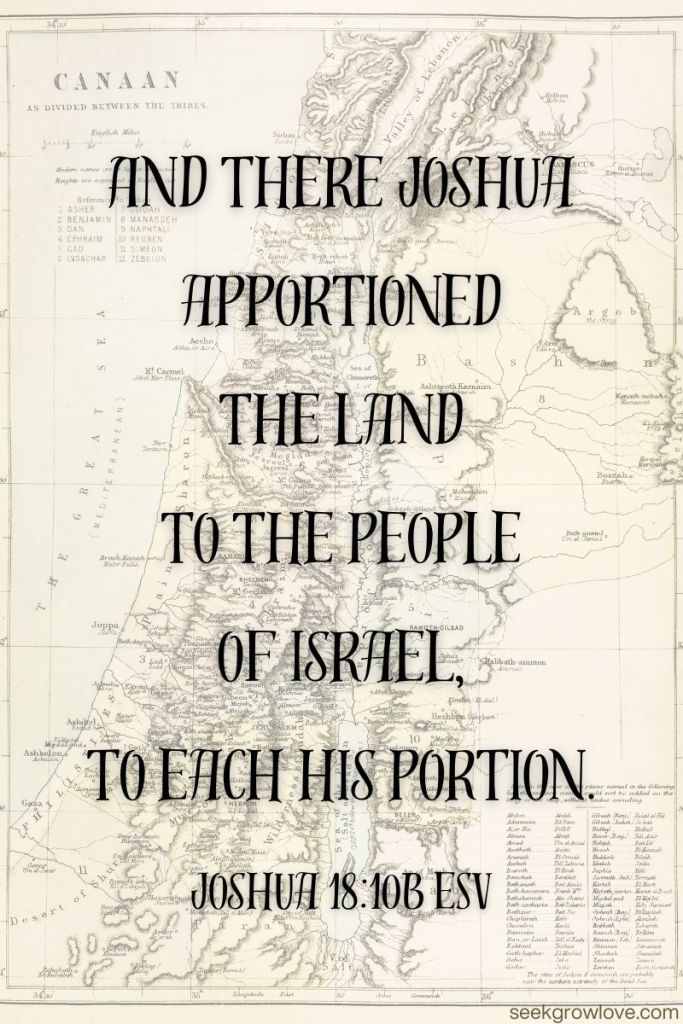
Old Testament: Joshua 23 & 24
Poetry: Psalm 51
New Testament: 1 Corinthians 11
Today’s Old Testament reading of Joshua 23 and 24 provides such good closure and an excellent way to wrap up the week. A farewell address from a man who had helped lead the Israelites into the promised land, and reminiscent of some of the things Moses said at the end of his life to the same people.
As I read Joshua 23 a phrase jumped out at me that was used several times. “Be careful!” As a mother, an occasional babysitter, a friend, neighbor, wife, and occupational therapist, this phrase is……one I try to avoid. Well, unless used more like Joshua. We’ve all said it, and chances are if we’ve survived this far, we’ve all had it said to us. It pops out before we even have the chance to think sometimes. What else would you say when seeing someone……dangling from the top of the climbing rainbow at Camp Mack, driving back to college, hiking with middle-aged directionally-challenged individuals in the Upper Peninsula, climbing up the bookcase while drinking from a bottle, using a walker to get around while trying to carry a cat, or pretty much any of the very exciting choices made by my “sensory seekers” at work.
The thing is, the phrase “be careful” is super abstract and subjective, and it just has very little meaning in most cases if left hanging in the air as it often is before…..kaboom/crash/oops. Given it is often said to children with little to no abstract reasoning capabilities, or in the case of many of my friends of all ages who come to see me at work, those who may not be emotionally or cognitively able to process that abstract language at the time…..it is far more useful with something concrete attached. You won’t hear it much where I work, though I assure you we witness many choices which are the opposite of careful. Instead, you will hear things like….“keep both hands on the monkey bars”, “push up from the chair first, then place your hand on the walker”, or a fun conversation I got to have recently, “Do you think that was too rough, too light, or just right?”…… “I agree. Bikes are for riding. The balls are for throwing.”
It seems as Joshua was saying farewell, he wanted the Israelites alerted to potential concerns, but he left them with excellent concrete directions. In verse 6 they are told to be careful, but at the same time instructed to know and obey the Book of the Law of Moses, to not associate with pagan nations, and to “hold fast” to the LORD. In verse 11 they are cautioned again to “be careful”, and instructed to love the LORD, to avoid intermarrying with pagan nations, throw away pagan gods, and serve the LORD alone. One would think the Israelites must have known a bit themselves by now that they kind of struggled with these things historically, and they were certainly still in reach of potential corruption and distraction. Joshua’s farewell address to them is a beautiful balance of cautious reminders and powerful directives laying out the choice they were given. Joshua chose for himself as stated in verse 15, and the people answered with their choice that day in verse 18….again in 21….and again in 24. We have the same choice, and we are blessed to have such tremendous access to the Bible for the concrete foundation on which to establish our worldview. We also have so many resources, commentaries, and Christians surrounding us with the freedom to seek clarity for the things we don’t understand or might need help getting tightened up from abstract to concrete.
So many rights could be wronged, if we all did what the Israelites said they would do….
“And the people said to Joshua, “We will serve the Lord our God and obey him.”
(Joshua 23: 24)
-Jennifer Hall
Questions:
If you tend toward being a “nervous Nellie” sort, or perhaps are just struggling with worry and being careful today, how could you redirect some of your attention to what you should be doing and who you should be trusting and serving?
If you might benefit from a few more cautious reminders in life or perhaps have some contamination from the world to throw away today, what can you extract from Joshua to apply to your life and mind?
What can you do right now to serve and obey the LORD?









